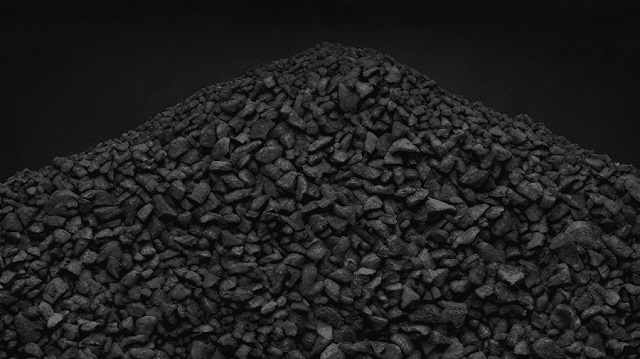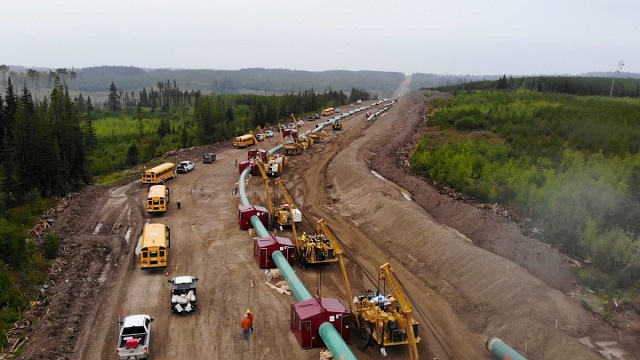Uncategorized
Glencore-Teck deal reveals the irony of coal: Profitable and vital, yet endlessly shunned

From the MacDonald Laurier Institute
By Heather Exner-Pirot
Coal is not going anywhere, and while some countries will benefit, Canada will not be among them
In many ways, the US$8.9-billion deal Glencore has struck for Teck Resources’ coal assets represents an elegant split that plays to each company’s strengths.
Teck, the Canadian miner, can now focus on its core base metals business, in particular copper, as it bets on strong returns in the years to come. Swiss commodities giant Glencore can build up its coal empire, adding the steelmaking coal assets to its vast thermal coal trade.
But the deal also reveals how coal has its own set of rules. Despite how profitable and strategic Teck’s coal resources are, they will soon come under foreign control. It is hard to imagine this unfolding the same way for any other commodity.
Coal is an essential, ubiquitous material. It is the workhorse of the global power sector, accounting for more than a third of global electricity generation. And it is indispensable in steelmaking. The burning of coke, a coal-based fuel, produces the carbon monoxide needed to convert iron ore into a liquid, alongside high temperatures. The majority of steel in the world is made with coking coal, also known as metallurgical coal.
Owing to its carbon intensity, it has a terrible reputation. Investors and shareholders, not to mention Western governments, shun it. Teck’s intention to spin off its coal business is linked to shareholder desires to see a decoupling of its metals and coal businesses out of environmental concerns, which have weighed on its valuation. Even as it pursues Teck’s coal assets, Glencore is doing the same; it plans to separate its metals and coal businesses within two years and sought Teck’s premium steelmaking coal to make its other coal holdings more palatable.
But shareholder distaste for coal is increasingly divorced from its economics. Coal is still highly profitable. Last year witnessed high prices and record demand, in part owing to the fallout from the Russian invasion of Ukraine. Both Teck and Glencore benefited greatly. Teck earned record profits of $4.9-billion, with coal accounting for 75 per cent of that. Glencore’s core profit rose 60 per cent to a record US$34.1-billion, more than half of which came from coal production.
Teck’s steelmaking coal assets in B.C.’s Elk Valley are world-class – high-quality, with decades of reserves and a low carbon intensity relative to other deposits. Glencore’s deal for them will see it partnering with Japan’s Nippon Steel and South Korea’s PISCO, who will take minority stakes. The fact that the deal includes two of the world’s biggest steel producers is evidence that these coal assets have long-term customers. This deal is not about Teck unloading a bad asset; it is about removing the ESG noose around its neck.
That’s poor justification for letting such vital assets end up in foreign hands. Yet the federal government will likely let the deal happen.
Federal scrutiny of foreign investment and takeovers in our domestic mining sector has grown of late, as the need for friendly sources of critical minerals grows. As The Globe and Mail reported last month, Canadian firms have mainly been the targets, rather than pursuers, of acquisitions in the sector in the past decade. Canada has toughened the Investment Canada Act as a result.
While the Teck-Glencore deal will raise similar concerns, it has been designed to skirt them. Teck’s news release could have been written by Ottawa. It aligns with the federal government’s recent Critical Minerals Strategy and commits to remaining a Canadian-based miner focused on “future-oriented metals,” “an electric vehicle battery recycling facility” and support for “junior Canadian mining and exploration companies.” It also preserves B.C.’s coal mining jobs and revenues.
There’s a parallel universe where a G7 country protects its most exquisite metallurgical coal deposit, required to produce a critical material for any advanced economy, energy system or military. That introduces policy to reshore and build up its domestic steel industry in an era of growing geopolitical turbulence.
The world in 2023 is not this place. And Canada is not that G7 country. Indeed, the world view of the current federal and B.C. governments sees the decline of coal as both imminent and necessary. There is no way they will make the argument that the material is a strategic resource that must remain under Canadian ownership.
But coal is not going anywhere. Some countries will benefit, economically and strategically, from controlling it. Canada will not be among them.
Heather Exner-Pirot is the director of energy, natural resources and environment at the Macdonald-Laurier Institute.
Uncategorized
Cost of bureaucracy balloons 80 per cent in 10 years: Public Accounts

The cost of the bureaucracy increased by $6 billion last year, according to newly released numbers in Public Accounts disclosures. The Canadian Taxpayers Federation is calling on Prime Minister Mark Carney to immediately shrink the bureaucracy.
“The Public Accounts show the cost of the federal bureaucracy is out of control,” said Franco Terrazzano, CTF Federal Director. “Tinkering around the edges won’t cut it, Carney needs to take urgent action to shrink the bloated federal bureaucracy.”
The federal bureaucracy cost taxpayers $71.4 billion in 2024-25, according to the Public Accounts. The cost of the federal bureaucracy increased by $6 billion, or more than nine per cent, over the last year.
The federal bureaucracy cost taxpayers $39.6 billion in 2015-16, according to the Public Accounts. That means the cost of the federal bureaucracy increased 80 per cent over the last 10 years. The government added 99,000 extra bureaucrats between 2015-16 and 2024-25.
Half of Canadians say federal services have gotten worse since 2016, despite the massive increase in the federal bureaucracy, according to a Leger poll.
Not only has the size of the bureaucracy increased, the cost of consultants, contractors and outsourcing has increased as well. The government spent $23.1 billion on “professional and special services” last year, according to the Public Accounts. That’s an 11 per cent increase over the previous year. The government’s spending on professional and special services more than doubled since 2015-16.
“Taxpayers should not be paying way more for in-house government bureaucrats and way more for outside help,” Terrazzano said. “Mere promises to find minor savings in the federal bureaucracy won’t fix Canada’s finances.
“Taxpayers need Carney to take urgent action and significantly cut the number of bureaucrats now.”
Table: Cost of bureaucracy and professional and special services, Public Accounts
| Year | Bureaucracy | Professional and special services |
|
$71,369,677,000 |
$23,145,218,000 |
|
|
$65,326,643,000 |
$20,771,477,000 |
|
|
$56,467,851,000 |
$18,591,373,000 |
|
|
$60,676,243,000 |
$17,511,078,000 |
|
|
$52,984,272,000 |
$14,720,455,000 |
|
|
$46,349,166,000 |
$13,334,341,000 |
|
|
$46,131,628,000 |
$12,940,395,000 |
|
|
$45,262,821,000 |
$12,950,619,000 |
|
|
$38,909,594,000 |
$11,910,257,000 |
|
|
$39,616,656,000 |
$11,082,974,000 |
Uncategorized
Trump Admin Establishing Council To Make Buildings Beautiful Again


From the Daily Caller News Foundation
By Jason Hopkins
The Trump administration is creating a first-of-its-kind task force aimed at ushering in a new “Golden Age” of beautiful infrastructure across the U.S.
The Department of Transportation (DOT) will announce the establishment of the Beautifying Transportation Infrastructure Council (BTIC) on Thursday, the Daily Caller News Foundation exclusively learned. The BTIC seeks to advise Transportation Secretary Sean Duffy on design and policy ideas for key infrastructure projects, including highways, bridges and transit hubs.
“What happened to our country’s proud tradition of building great, big, beautiful things?” Duffy said in a statement shared with the DCNF. “It’s time the design for America’s latest infrastructure projects reflects our nation’s strength, pride, and promise.”
“We’re engaging the best and brightest minds in architectural design and engineering to make beautiful structures that move you and bring about a new Golden Age of Transportation,” Duffy continued.
Mini scoop – here is the DOT’s rollout of its Beautifying Transportation Infrastructure Council, which will be tasked with making our buildings beautiful again. pic.twitter.com/
9iV2xSxdJM — Jason Hopkins (@jasonhopkinsdc) October 23, 2025
The DOT is encouraging nominations of the country’s best architects, urban planners, artists and others to serve on the council, according to the department. While ensuring that efficiency and safety remain a top priority, the BTIC will provide guidance on projects that “enhance” public areas and develop aesthetic performance metrics.
The new council aligns with an executive order signed by President Donald Trump in August 2025 regarding infrastructure. The “Making Federal Architecture Beautiful Again” order calls for federal public buildings in the country to “respect regional architectural heritage” and aims to prevent federal construction projects from using modernist and brutalist architecture styles, instead returning to a classical style.
“The Founders, in line with great societies before them, attached great importance to Federal civic architecture,” Trump’s order stated. “They wanted America’s public buildings to inspire the American people and encourage civic virtue.”
“President George Washington and Secretary of State Thomas Jefferson consciously modeled the most important buildings in Washington, D.C., on the classical architecture of ancient Athens and Rome,” the order continued. “Because of their proven ability to meet these requirements, classical and traditional architecture are preferred modes of architectural design.”
The DOT invested millions in major infrastructure projects since Trump’s return to the White House. Duffy announced in August a $43 million transformation initiative of the New York Penn Station in New York City and in September unveiledmajor progress in the rehabilitation and modernization of Washington Union Station in Washington, D.C.
The BTIC will comprise up to 11 members who will serve two-year terms, with the chance to be reappointed, according to the DOT. The task force will meet biannually. The deadline for nominations will end Nov. 21.
-

 Carbon Tax1 day ago
Carbon Tax1 day agoCarney fails to undo Trudeau’s devastating energy policies
-

 Business23 hours ago
Business23 hours agoBudget 2025: Ottawa Fakes a Pivot and Still Spends Like Trudeau
-

 Health23 hours ago
Health23 hours agoTens of thousands are dying on waiting lists following decades of media reluctance to debate healthcare
-

 Business2 days ago
Business2 days agoI Was Hired To Root Out Bias At NIH. The Nation’s Health Research Agency Is Still Sick
-

 Business2 days ago
Business2 days agoLarge-scale energy investments remain a pipe dream
-

 armed forces1 day ago
armed forces1 day agoCanada At Risk Of Losing Control Of Its Northern Territories
-

 International1 day ago
International1 day agoCanada’s lost decade in foreign policy
-

 Opinion18 hours ago
Opinion18 hours agoLandmark 2025 Study Says Near-Death Experiences Can’t Be Explained Away








